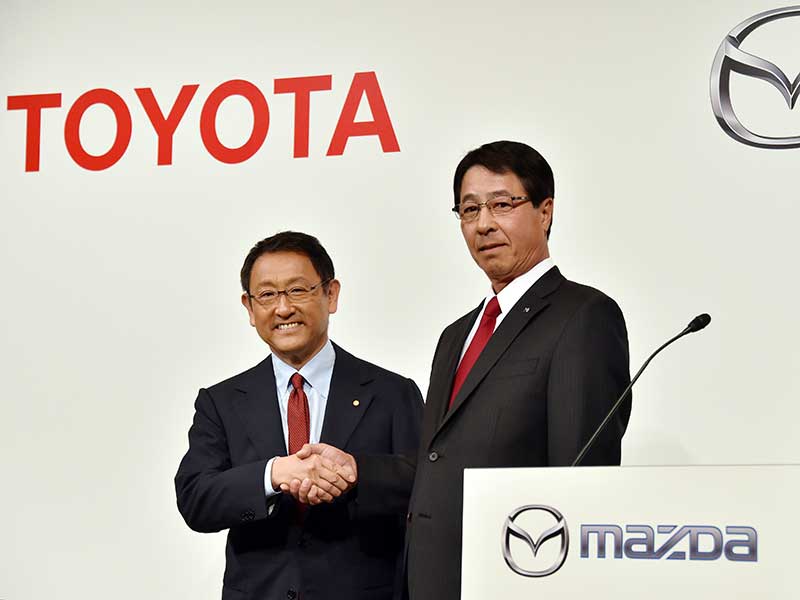Toyota and Mazda enter joint venture to build $1.6bn US assembly plant
Japanese car manufacturers Toyota and Mazda have agreed to share a new $1.6bn manufacturing plant in the US, while further pooling resources to research the development of electric vehicles

Toyota and Mazda entered into an agreement in May 2015 to explore research-sharing avenues
On August 4, Toyota and Mazda announced plans to strengthen their ongoing partnership by investing $1.6bn in a new US assembly plant, as well as sharing research into electric vehicles. The planned investment may prove advantageous to US President Donald Trump, as it appears to bolster his mission to reinvigorate US manufacturing. Back in January, Trump threatened Toyota with hefty border taxes in response to its proposal to build a plant in Baja, Mexico.
The US-based manufacturing plant is set to begin operations in 2021, and is expected to produce around 300,000 vehicles per year, with the output divided between both firms. The location of the plant is yet to be revealed, but Toyota and Mazda have said it will create 4,000 new jobs.
Toyota already boasts a number of US-based factories, with a particularly strong presence in the southeast; Toyota has operations in Texas, Mississippi, Indiana, Alabama and West Virginia, while Kentucky is home to the firm’s largest manufacturing facility in the world.
Toyota and Mazda have said the US-based manufacturing plant will create 4,000 new jobs
Meanwhile, Mazda currently has no production facilities in the US, but has previously operated factories in Kansas and Michigan, one of the Midwestern, rustbelt states Trump promised to return to prosperity during his presidential campaign.
As part of the deal, Toyota will take a five percent stake in the more modest Mazda, with Mazda taking a 0.25 percent stake in Toyota in return. This represents a further union of the two companies, which entered into an agreement in May 2015 to form a committee and explore research-sharing avenues.
The plan to share research into electric car development comes at a crucial time, with industry leaders investing heavily in order to meet the global drive to toughen regulations on gas-powered vehicles.
In Europe, both France and the UK have stated plans to cease gas-vehicle production by 2040, with other countries likely to follow suit. Firms are also ramping up investment in lithium-ion batteries to gain ground on US firm Tesla, which is set to bring an affordable $35,000 electric car to market later this year.













